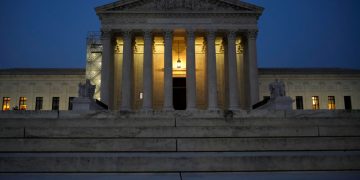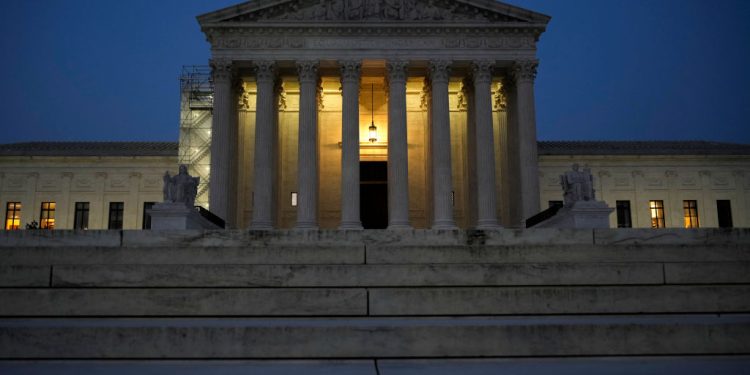The Supreme Court has agreed to hear two cases regarding whether state laws restricting social media content moderation violated the U.S. Constitution.
Plaintiffs in NetChoice v. Paxton, a case regarding a Texas law that limits the content that social media platforms such as Facebook and X, formerly known as Twitter, can moderate, and Moody v. NetChoice, a similar case regarding a Florida law limiting social media companies from moderating certain content, are claiming the laws violate their First Amendment rights, according to the New York Times.
Under the laws, social media platforms are prevented from removing posts based on the views people express. Exceptions include threats of violence, the sexual exploitation of children, and the encouragement of engaging in criminal activity.
“We are pleased the Supreme Court agreed to hear our landmark cases,” NetChoice Litigation Director, Chris Marchese said in a statement on X. “Online services have a well-established First Amendment right to host, curate and share content as they see fit. The internet is a vital platform for free expression, and it must remain free from government censorship. We are confident the Court will agree.”
NETCHOICE & CCIA CASES ACCEPTED: FREE SPEECH ONLINE AT THE SUPREME COURT
CONTACT: @KristaAChavez, [email protected]
WASHINGTON—Today, the U.S. Supreme Court agreed to hear NetChoice & CCIA v. Moody and NetChoice & CCIA v. Paxton, our landmark First Amendment lawsuits over…— NetChoice (@NetChoice) September 29, 2023Are state laws limiting what content can be moderated unconstitutional?
“The NetChoice & CCIA cases are critical to protecting free speech on the internet,” NetChoice added in its statement. “We are confident the Court will uphold the First Amendment and strike down these unconstitutional laws.”
The 5th Circuit Court of Appeals supported the Texas law in a September 2022 decision. In its decision, the court found that social media companies do not “have a freewheeling First Amendment right to censor what people say.”
Meanwhile, the 11th Circuit Court of Appeals found Florida’s law to be unconstitutional in a May 2022 decision. The court wrote in its ruling that it was “substantially likely that one part of the law’s particularly onerous disclosure provisions” requiring social media companies to provide an explanation for “each and every content-moderation decision” made was in violation of the First Amendment.
Republican lawmakers have been in favor of the two laws, citing several instances in which social media corporations have censored content or even people they have disagreed with. The U.S. Court of Appeals for the Fifth Circuit Court ruled that the Biden Administration had likely violated the First Amendment by pressuring social media platforms to censor information regarding COVID-19.
Additionally, the Supreme Court will also hear two cases regarding whether public officials can block constituents on social media while posting about their jobs, according to The Hill. The Supreme Court will hear the cases on Oct. 31.


























 Continue with Google
Continue with Google